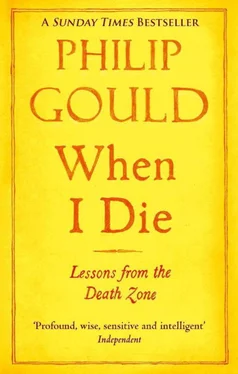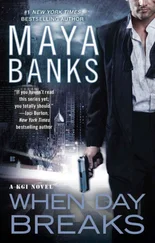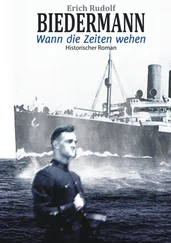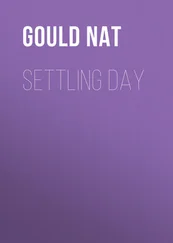Then I had awoken to a bright light almost full in my face. I remember feeling close to the sun. This time it was as if I was at the bottom of a murky sea, the light far above me, subdued, distant, swirling with the waves.
Gradually the light got closer and I heard sounds. Immediately a voice said: ‘It’s over, the surgery has been a complete success.’ In a second I was calm.
Then I felt the ventilating tube in my throat, vast and obtrusive. I started to cough, feeling spasms of unbearable pain in my throat where the ventilator met my wound. The more I coughed the worse the pain, and then it became intolerable, just beyond description.
My heart rate shot up and the pain, the panic and the sense of suffocation combined to produce a moment of complete blackness. I knew this was the biggest test of my life, one that I was not certain I could pass.
I did not feel alone, though. The pain somehow connected to the suffering of others in the world. At this crucial moment I felt not isolation but empathy, some kind of recognition of the power of the human spirit.
I used every resource I had to control the pain. I tried meditating but it made no difference at all. I attempted to pray but could not get a foothold. The pain and panic just rose. And then I thought of Gail. If she could tough it out through the day and the night, then so could I.
And that was enough. I was able to hang on until they pulled out the ventilator. The moment had passed, I had got through it. Just.
* * *
I saw as if through a watery lens that Gail had arrived at my side. I could not talk, I had tubes everywhere, I must have looked ghastly. She was nervous, anxious, tired, but vibrant with hope and love. She said one thing over and over again: you have made it.
And then, to gain some peace, I held up my finger to indicate quiet. Gail looked at my raised finger and saw it instead as a demand. ‘He wants something, but what is it?’ The nurses gathered round to try to find out. Ungratefully, I slumped back, thinking: why does no one understand me? But this note of domestic disharmony was a small comfort too.
As my vision slowly returned I was able to make some sense of the space in which I now found myself. I was surrounded by instruments, tubes and nurses. There were twelve beds, with a central supervision area. As I looked I saw the contrast between the brightness of the intensive care unit and the darkness around me. My neighbours included not only seriously ill people moving towards recovery after their operations, but others in a state of grave illness, fighting off death, kept alive by medical science and impressively dedicated care.
One man had serious pneumonia and lay there unable to speak at all or move much, in a kind of permanent limbo of suffering. Another had endured a major stroke and groaned constantly day and night. One day one of the patients was in such emotional and physical pain that he indicated he wanted to end his life. A friend sat by his bed and prayed.
I had never been so close to pain, death and severe suffering before. It affected Gail greatly, making her feel that life hung by a thread, that the path you walked in apparent security but was in fact treacherous. It affected the medical staff too, especially the younger ones. Sucked so close to death, they had to find a way of dealing with it. They wanted to talk about it: what did it mean, what could and should they do about it?
There were moments of hope and mystery. On my second day in intensive care, one of the patients was visited by his sister and his wife. They sat down – one elderly and white-haired, the other middle-aged and sprightly – and started to sing, not quietly and privately but loudly and confidently. Without warning, the haunting cadence of ‘Danny Boy’ filled the room. And then a remarkable thing happened. Everyone in the room stopped what they were doing, turned to the singers and froze, trapped in a moment somewhere between the real and the ethereal. And they stayed there, unmoving, until the voices fell silent five or six songs later. It was as if time had stood still, replaced by the sublime.
And there were moments of farce too. Gradually my production of urine started to decline. Every hour it got worse. The doctors thought at first it was because I was not drinking enough. Gradually they worked their way to the truth, which I had long since suspected, that my catheter had stopped working and they would need to replace it. This was a frightening prospect; I was certain that it would be painful.
The curtains were closed around me and a small medical crowd appeared. I felt my misfortune was a spectator sport. The surgeon was in control and took the old catheter out, which was not painful at all.
I felt it was going my way, but then he produced a large white sheet about a metre across with a hole about an inch wide in its centre, which was placed over me. I don’t think I have ever felt quite so exposed. The sister produced a calliper-like instrument and measured me. And then in a completely surreal moment she said: ‘I think we need a small bore tube; it’s not very big, is it?’
She was referring, I hope, to the size of the aperture and nothing else, but it was still embarrassing. The crowd was asked to leave and it was me and the surgeon. He injected a local anaesthetic, which amazingly did not hurt, and inserted the new catheter, causing me almost no pain at all. Not for the first time, my fear had been misplaced.
For most of the time I lay there in a kind of limbo, not able to talk much, but able to hear everything. It became clear to me that nurses – and doctors – assume that a patient’s consciousness disappears if their eyes are shut; with your eyes closed, you would be talked about as if you were not there. This was understandable but disquieting. It was also interesting: I would lie there, not asleep yet not really awake, constantly and unavoidably listening. The first morning a doctor reviewed my surgery to his team, going through detail after grisly detail, totally oblivious to the fact that I could hear every word. I had moved in the blink of an eye from being a subject to an object.
Time after time, comments made to my face were flatly contradicted by remarks made just seconds later when I appeared to be asleep. One moment a nurse told me I could have as much pain relief as I wanted, but the second my eyes were shut he turned to his companion and said, ‘He’s obviously neurotic about pain, and the more pain relief he gets the more he’ll want.’
Completely true, of course. Pain was an issue for me, certainly. I felt low-level pain almost continuously and acute pain quite often, and I hated it. I learnt the disabling power of pain, how hard it is to cope with, how undermining it can be. The Geordies were stoic, they toughed it out and got through it. In contrast, I felt like a hopeless southern wimp.
The worst moments – in Newcastle, as in New York – were when they changed my position in bed. This always caused pain to shoot through my body like a small electric shock. With pain, as with almost everything else in cancer, the fear is worse than the reality, and every time you are able to defeat it your body and spirit become stronger. I still hate pain but I can now tolerate it in ways unimaginable three years ago. But I do now feel a greatly heightened empathy with anyone suffering serious pain. Cancer does change you like that.
The nurses in the unit were strong, opinionated and forceful. They would chatter constantly, often focusing on financial pressures, complaining about such matters as Wayne Rooney and his salary, which was an issue at the time. It seemed clear to me that excessive differentials in pay were straining the public-service spirit. It is hard not to feel sympathy. These nurses were working twelve-hour shifts with critically ill patients, on the very cusp of life and death, and yet they were paid £33,000 or so a year, not £180,000 a week.
Читать дальше












